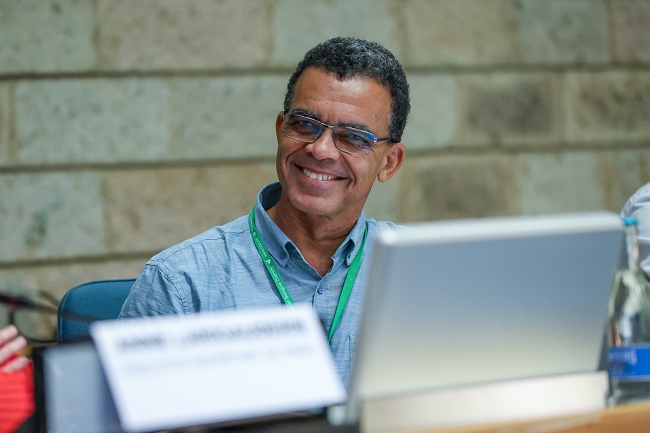Representatives of almost 150 governments are on Tuesday, December 10, 2024, starting a week-long meeting with some of the world’s leading scientific experts on biodiversity in Windhoek, Namibia, to tackle a range of challenges related to biodiversity loss and the degradation of nature’s contributions to people around the world.

The 11th session of the Plenary of the Intergovernmental Science-Policy Platform on Biodiversity and Ecosystem Services (#IPBES11) will be the first ever meeting in Africa of the global body tasked with presenting decision-makers with the best-available science and expertise, to inform policy and action on nature.
“As the first Chair of IPBES from Africa, it is wonderful to also have the opportunity to conduct the first ever session of the IPBES Plenary on African soil,” said Dr. David Obura (Kenya).
“#IPBES11 is tremendously important to inform and help shape policy and actions that support biodiversity and just, sustainable futures for people and nature across the world. I would particularly like to thank H.E. President Nangolo Mbumba and all the people of Namibia for their remarkable hospitality and generosity in hosting the IPBES Plenary,” added Obura.
Addressing delegates in person about the importance of the meeting, Namibian Minister of Environment, Forestry and Tourism, Pohamba Shifeta, remarked: “Let IPBES-11 be a turning point where science, policy, and global collaboration come together to secure a future where biodiversity thrives, and humanity flourishes alongside each other. The findings of the IPBES Nexus and Transformative Change Reports highlight the urgent need for integrated, cross-sectoral approaches. Namibia calls on all stakeholders to strengthen international cooperation, increase financial and technical support for biodiversity-rich nations, and prioritise the inclusion of local communities in conservation strategies.”
Among the most important agenda items for the 11th session of the IPBES Plenary will be the consideration by the member States of two landmark new IPBES assessment reports.
The IPBES Nexus Assessment explores the interlinkages and interconnections between crises in biodiversity, water, food, health and climate change – and will offer decision-makers a wide range of options for action across all of these challenges together, rather than in separate single-issue silos, which will also support just and sustainable outcomes across these crises.
The IPBES Transformative Change Assessment focuses on the underlying drivers of biodiversity loss and the kind of system-wide changes needed to conserve and restore biodiversity for a more just and sustainable world.
The Plenary will also consider approving the scope of a vital new assessment – the Second Global Assessment of Biodiversity and Ecosystem Services – a follow-up to the seminal 2019 IPBES Global Assessment, which alerted the world to the fact that a million species of plants and animals now face extinction.
